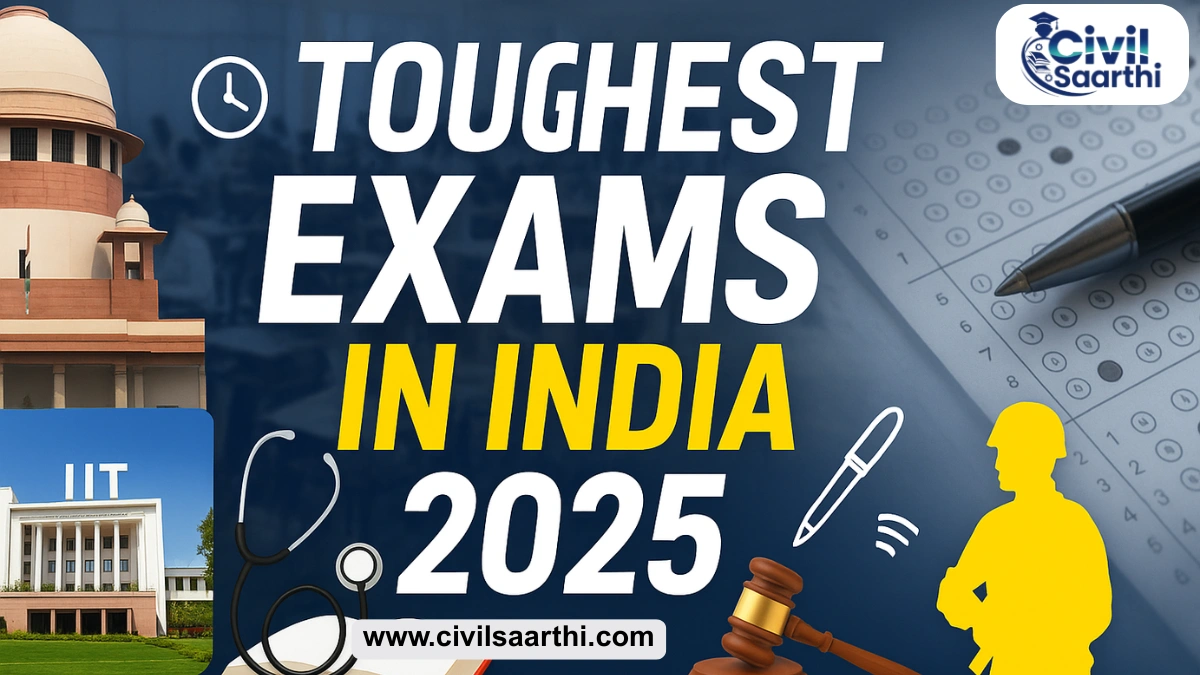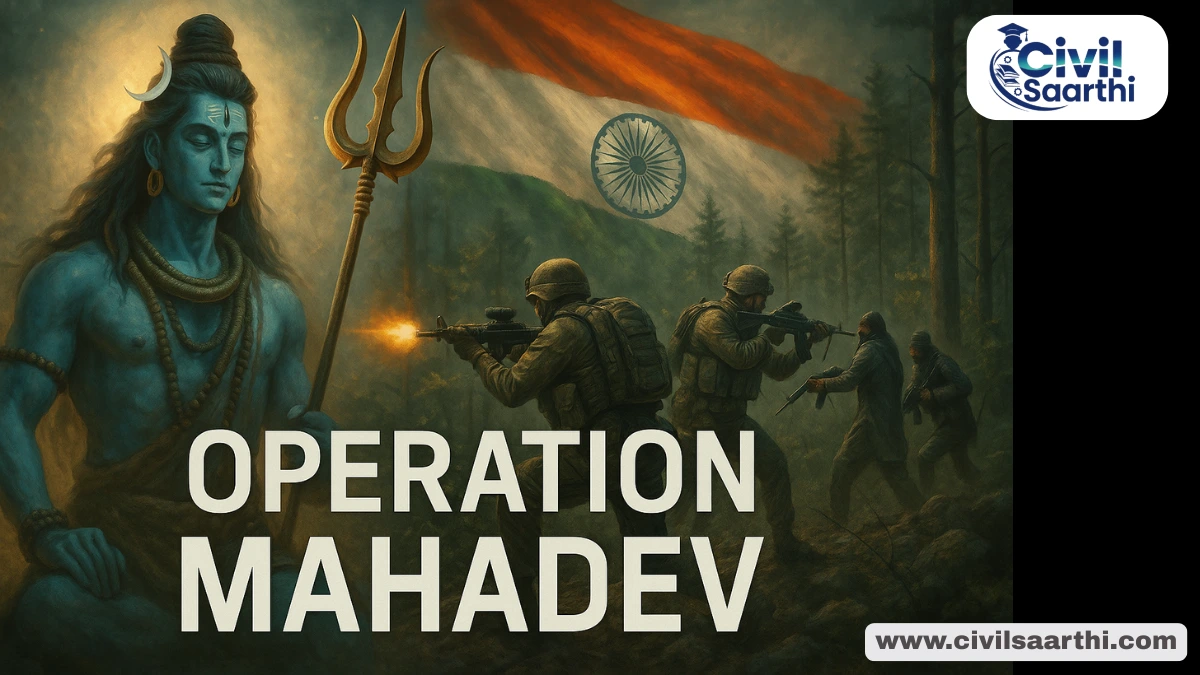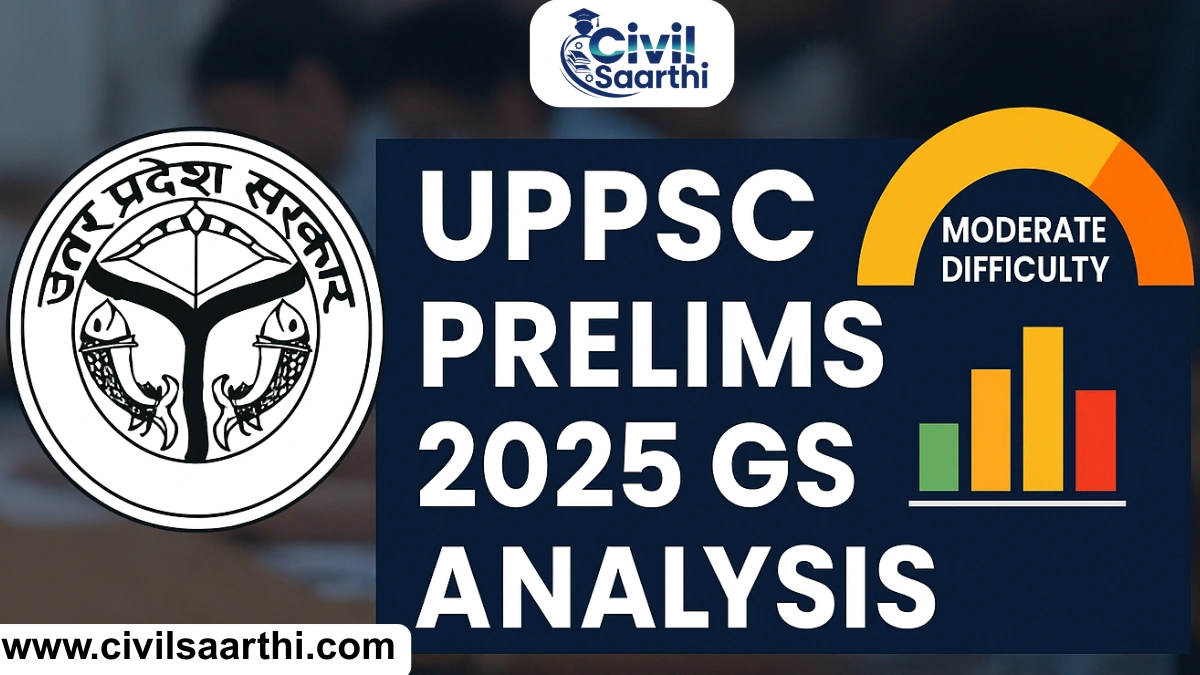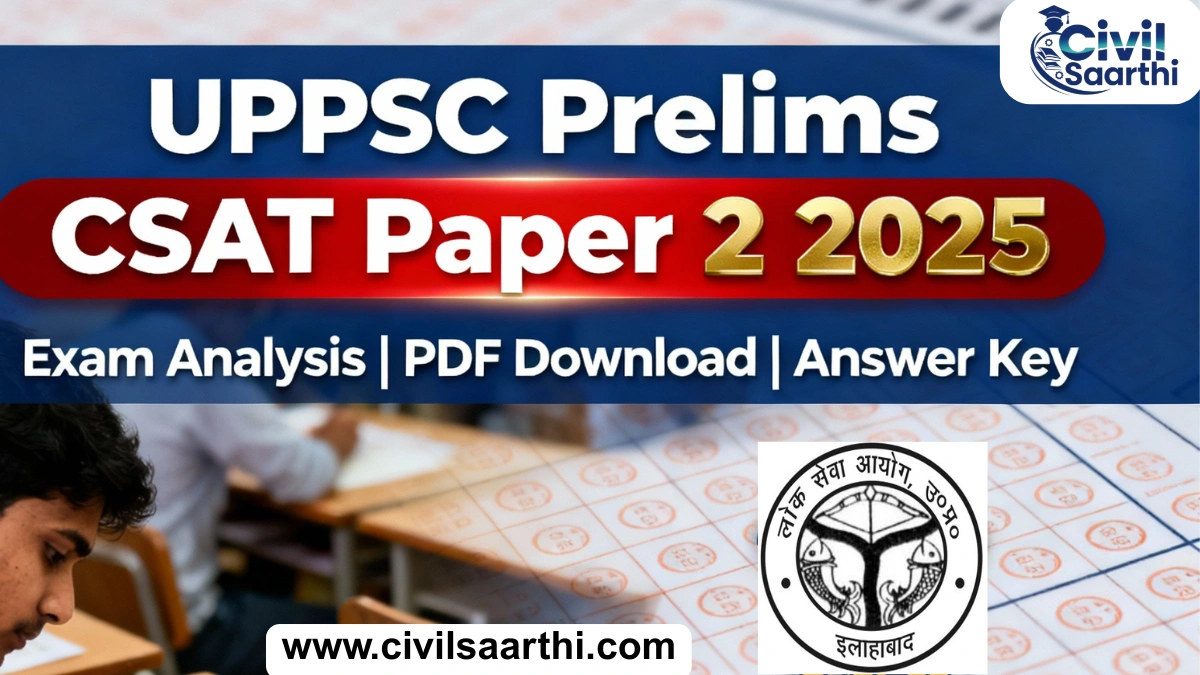India has one of the most competitive education and career landscapes in the world. Each year, millions of students prepare for entrance and recruitment exams that can change their lives forever. While some exams are moderately difficult, a few are so challenging that they are considered the toughest exams in India.
These exams are not just about knowledge, they test mental strength, time management, analytical ability, personality, and resilience. The success rate is extremely low, sometimes less than 1%, making them career-defining milestones.
In this article, we present the Top 10 Toughest Exams in India in 2025 with detailed insights into their structure, competition level, and preparation requirements.
Top 10 Toughest Exams in India 2025: List
Here is a list of Top 10 Toughest Exams in India along with the details related to it.
| Rank | Exam Name | Field / Career Path | Applicants (Approx.) | Success Rate | Key Challenge |
|---|---|---|---|---|---|
| 1 | UPSC Civil Services Exam (CSE) | IAS, IPS, IFS, IRS | 10–12 lakh | 0.1–0.3% | Vast syllabus & multi-stage selection |
| 2 | JEE Advanced | Engineering (IITs) | 2.5 lakh | 1–2% | Concept-heavy, intense competition |
| 3 | NEET-UG | Medical (MBBS/BDS) | 20+ lakh | 4–6% | High cut-offs, massive applicants |
| 4 | CAT (Common Admission Test) | MBA (IIMs, Top B-Schools) | 2.5 lakh | ~2% | Percentile-based selection |
| 5 | GATE (Graduate Aptitude Test in Engineering) | M.Tech, PSU Jobs | 7–8 lakh | 6–7% | Technical depth & numerical challenges |
| 6 | CLAT (Common Law Admission Test) | Law (NLUs, Legal Careers) | 60,000+ | ~3% | Limited seats, legal reasoning |
| 7 | CA Exams (Chartered Accountant) | Finance, Accounting | 2–3 lakh | 5–20% | Multi-level, long training |
| 8 | NDA Exam | Defence (Army, Navy, Air Force) | 6 lakh | 0.1% | Written + SSB Interview + Medical |
| 9 | UGC NET | Assistant Professor, JRF | 8–10 lakh | 6–7% | Subject knowledge + teaching aptitude |
| 10 | CDS Exam | Defence Officer Entry | 3–4 lakh | 0.1–0.2% | Multi-stage exam + SSB Interview |
Why Are Some Exams Considered the Toughest in India?
Before diving into the list, let’s understand what makes an exam “tough”:
Number of Candidates vs. Seats: Lakhs of aspirants compete for a few thousand positions.
Vast Syllabus: Covering multiple subjects in great depth.
Multi-Stage Selection Process: Prelims, mains, interviews, and sometimes physical or psychological tests.
Low Success Rate: Many exams filter out 95–99% of candidates.
Career Impact: Passing these exams leads to prestigious and life-changing opportunities.
1. UPSC Civil Services Examination (CSE)
The Union Public Service Commission (UPSC) conducts the Civil Services Exam to recruit India’s top bureaucrats; IAS, IPS, IFS, IRS officers, and more. It is often regarded as the toughest exam in India.
Key Details
Applicants: 10–12 lakh annually
Final Selection: Around 1000–1200 candidates
Success Rate: 0.1–0.3%
Stages:
Prelims – Objective type, mainly screening
Mains – Descriptive papers across subjects
Personality Test (Interview) – Assessing attitude, confidence, and analytical ability
Why is UPSC so Tough?
Vast syllabus covering history, polity, economy, science, ethics, and current affairs.
Requires both factual knowledge and analytical writing.
Long preparation period of 1–2 years.
Extremely low selection ratio.
Opportunities After Clearing
Positions like IAS, IPS, IFS, IRS with high authority, respect, and policy-making responsibilities.
2. JEE Advanced
The Joint Entrance Examination (JEE) Advanced is the gateway to the Indian Institutes of Technology (IITs). It comes after JEE Main, and only the top 2–2.5 lakh candidates from JEE Main qualify to appear.
Key Details
Applicants: 2.5 lakh qualified students
Seats: Around 17,000 in IITs
Success Rate: ~1–2%
Subjects: Physics, Chemistry, Mathematics
Why is JEE Advanced Tough?
Highly conceptual questions requiring deep problem-solving skills.
Strict time pressure with long calculations.
Only the best from JEE Main can attempt it.
Opportunities After Clearing
Admission into IITs, leading to careers in engineering, research, entrepreneurship, and global opportunities.
3. NEET-UG
The National Eligibility cum Entrance Test (NEET-UG) is the single entrance exam for medical aspirants in India. It is mandatory for MBBS, BDS, and many allied medical courses.
Key Details
Applicants: Over 20 lakh in 2025
Seats: About 1.2 lakh MBBS/BDS seats
Success Rate: 4–6%
Subjects: Physics, Chemistry, Biology
Why is NEET Tough?
Massive competition, lakhs of aspirants for limited seats.
High cut-off for top colleges like AIIMS, JIPMER, and AFMC.
Syllabus requiring both speed and accuracy.
Opportunities After Clearing
MBBS and BDS courses in prestigious medical colleges.
4. CAT (Common Admission Test)
For management aspirants, the CAT exam is the most prestigious and toughest MBA entrance test in India. It is conducted annually by the IIMs.
Key Details
Applicants: Over 2.5 lakh students yearly
Selection Rate: ~2% for IIMs
Sections: Quantitative Aptitude, Verbal Ability, Data Interpretation, Logical Reasoning
Why is CAT Tough?
Percentile-based selection, only top scorers make it.
Questions test logical and analytical reasoning.
Requires speed, accuracy, and mental toughness.
Opportunities After Clearing
Admission into IIMs and other top business schools, leading to careers in corporate leadership, finance, consulting, and entrepreneurship.
5. GATE (Graduate Aptitude Test in Engineering)
GATE is conducted for admission into postgraduate engineering programs and for recruitment in Public Sector Undertakings (PSUs).
Key Details
Applicants: 7–8 lakh annually
Success Rate: 6–7%
Subjects: Core engineering subjects + Aptitude
Why is GATE Tough?
Tests in-depth subject knowledge.
Numerical problem-solving with time management challenges.
Strong competition for limited PSU jobs.
Opportunities After Clearing
M.Tech/M.E admissions in IITs, NITs, and top universities.
High-paying PSU jobs.
6. CLAT (Common Law Admission Test)
For students aspiring to become lawyers, CLAT is the gateway to National Law Universities (NLUs).
Key Details
Applicants: Over 60,000
Seats: Around 3,000 in top NLUs
Success Rate: Less than 3%
Subjects: Legal Aptitude, GK, English, Logical Reasoning, Quantitative Aptitude
Why is CLAT Tough?
Limited seats in top law schools.
Focus on speed, comprehension, and legal reasoning.
Opportunities After Clearing
Law programs in NLUs, leading to careers as lawyers, corporate consultants, judges, and legal advisors.
7. CA (Chartered Accountant) Exams
The CA exams are conducted by the Institute of Chartered Accountants of India (ICAI). It is considered one of the most rigorous professional courses in India.
Key Details
Stages: Foundation → Intermediate → Final
Duration: 4–5 years with articleship
Pass Percentage: 5–20% depending on stage
Why is CA Tough?
Vast syllabus covering law, auditing, taxation, and finance.
Requires years of dedication and discipline.
Long articleship training period.
Opportunities After Clearing
Chartered Accountant careers in audit firms, corporates, finance, or independent practice.
8. NDA (National Defence Academy) Exam
The NDA exam, conducted by UPSC, selects candidates for entry into the Army, Navy, and Air Force.
Key Details
Applicants: Over 6 lakh yearly
Selection Rate: Around 0.1%
Process: Written Test → SSB Interview → Medical Examination
Why is NDA Tough?
Demands excellence in academics, leadership, physical fitness, and psychology.
SSB interview is highly challenging.
Opportunities After Clearing
Training at NDA followed by commission as officers in the Armed Forces.
9. UGC NET (National Eligibility Test)
The UGC NET exam is conducted to select Assistant Professors and award Junior Research Fellowships (JRF).
Key Details
Applicants: 8–10 lakh annually
Success Rate: 6–7% for JRF
Papers: General Aptitude + Subject-specific
Why is UGC NET Tough?
Requires deep subject knowledge.
Success in JRF requires being in the top percentile.
Opportunities After Clearing
Academic career as Assistant Professors.
Research opportunities with UGC JRF.
10. CDS (Combined Defence Services Exam)
The CDS exam, conducted by UPSC, recruits candidates for the Indian Military Academy, Naval Academy, Air Force Academy, and Officers Training Academy.
Key Details
Applicants: Around 3–4 lakh
Selection Rate: ~0.1–0.2%
Process: Written Exam + SSB Interview
Why is CDS Tough?
Multi-stage process with mental, physical, and leadership evaluations.
Very low final selection ratio.
Opportunities After Clearing
Officer-level positions in the Armed Forces.
Preparation Tips for Cracking the Toughest Exams in India
1. Understand the Exam Pattern & Syllabus
Start by going through the official syllabus and previous years’ question papers. Knowing the structure helps in identifying important topics and prioritizing your study plan.
2. Build a Realistic Study Schedule
Divide your preparation into daily, weekly, and monthly goals. Consistency matters more than long study hours, so ensure you follow a disciplined timetable.
3. Focus on Conceptual Clarity
Whether it’s UPSC, JEE, or CAT, rote learning doesn’t work. Strengthen your fundamentals and practice applying concepts to real-life and problem-based situations.
4. Practice Mock Tests & PYQs
Take regular mock tests to improve speed, accuracy, and time management. Analyzing previous years’ papers will give you insight into question trends and difficulty levels.
5. Improve Writing & Presentation Skills
For descriptive exams like UPSC or CA, practice answer writing. Clear structure, logical flow, and precise explanations increase your chances of scoring high.
6. Strengthen General Awareness & Current Affairs
Most competitive exams test awareness of national and international issues. Read newspapers, reliable magazines, and follow monthly current affairs compilations.
7. Stay Physically & Mentally Fit
Exams like NDA and CDS also test physical endurance. Even for academic exams, a healthy routine with exercise, meditation, and breaks helps maintain focus.
8. Revise Regularly
Revision is the key to retention. Make short notes, use flashcards, and revise multiple times before the exam to ensure concepts stay fresh.
9. Take Guidance When Needed
Join coaching classes, online test series, or mentorship programs if required. Peer discussions and expert guidance help in better understanding tough concepts.
10. Stay Consistent & Motivated
Cracking these exams takes time and persistence. Stay motivated, track progress, and avoid burnout by balancing studies with relaxation.
Importance of Competitive Exams in Shaping Careers
Gateway to Prestigious Careers – Opens opportunities in civil services, medicine, engineering, law, management, and defense.
Equal Opportunity Platform – Provides merit-based selection, ensuring fairness across social and economic backgrounds.
Skill Development – Enhances discipline, time management, analytical thinking, and problem-solving abilities.
Social Recognition & Prestige – Successful candidates gain respect and recognition in society.
Financial Stability & Security – Many exams lead to government or high-paying private sector jobs.
Personal Growth – Builds confidence, perseverance, and resilience in aspirants.
FAQs on Toughest Exams in India
Q1: Which is the toughest exam in India in 2025?
UPSC Civil Services Examination is considered the toughest due to its vast syllabus and low selection ratio.
Q2: Is JEE Advanced tougher than NEET?
JEE Advanced is tougher conceptually, while NEET is tougher in terms of competition because of the large number of applicants.
Q3: How many attempts are allowed for UPSC?
General category candidates can attempt UPSC CSE 6 times till the age of 32.
Q4: Can an average student crack these exams?
Yes, with consistent effort, planning, and discipline, many average students have cleared India’s toughest exams.
Q5: Which exam offers the highest salary after clearing?
UPSC services (IAS/IPS/IFS) and CA exams generally lead to high-paying careers, but salary depends on career choice.







